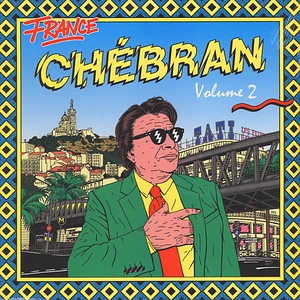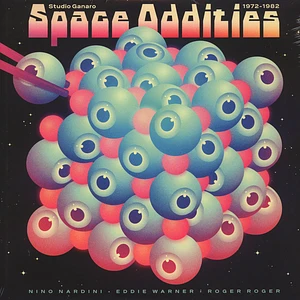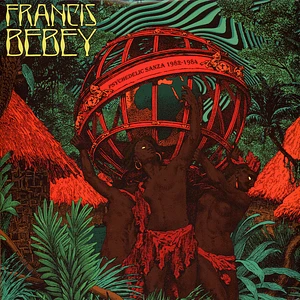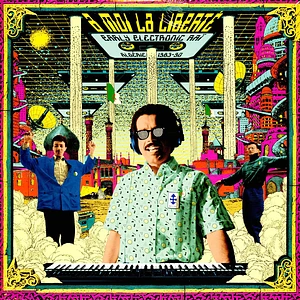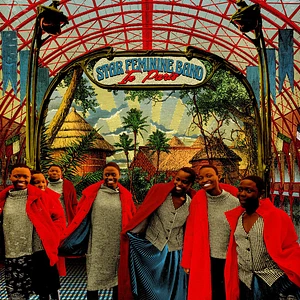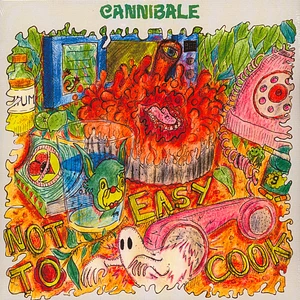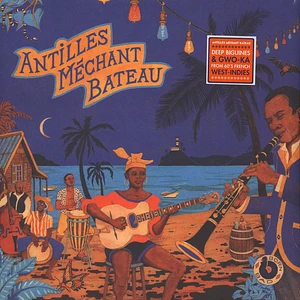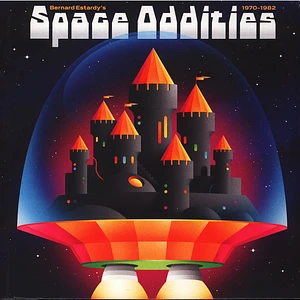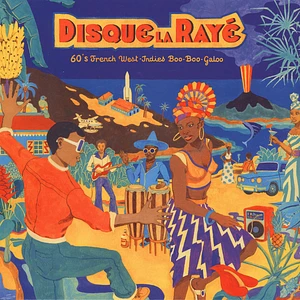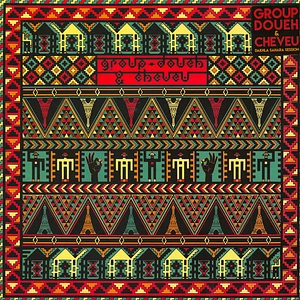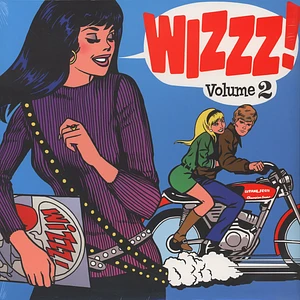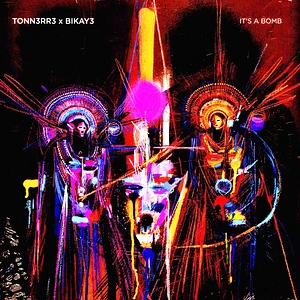1958, in the middle of the liberation war. While the rattle of machine guns could be heard in the maquis, in the city, the population listened at low volume to Algerian patriotic songs broadcast by the powerful Egyptian radio: “The Voice of the Arabs”. These artists all belonged to a troupe created by the self-proclaimed management of the National Liberation Front (FLN), based in Tunis and claiming to gather a “representative” sample of the Algerian musical movement of the time, among which Ahmed Wahby (who sang Wahran Wahran, a song popularized by Khaled) and Wafia from Oran, Farid Aly the Kabyle, and H’sissen, the champion of Algiers’ Chaâbi. The same year, singer Ben Achour was killed in conditions that have never been elucidated.
Algiers, by a summer evening in 1960. Cafe terraces were crowded and glasses of anisette kept coming with metronomic regularity, despite the alarming music of police sirens heard at intervals and the silhouettes of soldiers marching in the streets. The mood was good, united by a tune escaping from everywhere: balconies, where laundry was finishing drying, windows wide open from apartments or restaurants serving the famous Algiers shrimps along with copious rosé wine. Couples spontaneously joined the party upon hearing “Ya Mustafa“, punctuated by improvised choirs screaming “Chérie je t’aime, chérie je t’adore“. The song, as played by Sétif-born Alberto Staïffi, was a phenomenal success, to the point that even FLN fighters adopted it unanimously. Hence an unfortunate misunderstanding that would trick colonial authorities into believing Mustafa was an ode to the glory of Fellaghas. In 1961, Cheikh Raymond Leyris, a Jewish grand master of ma’luf (one of Algeria’s three Andalusian waves) who was Enrico Macias’ professor, was killed in Constantine, making him the first victim of a terrorist wave that would catch up with Algeria at the dawn of the 1990s by attacking anything that thought, wrote or sang.
Mohamed Mazouni, born January 4, 1940 in Blida – “The City of Roses” both known for its beautiful ‘Blueberry Square’ (saht ettout) in the middle of which a majestic bandstand took center stage, and its brothels – had just turned twenty. He was rather handsome and his memory dragged around a lot of catchy refrains by Rabah Driassa and Abderrahmane Aziz, also natives of Blida, or by ‘asri (modern music) masters Bentir or Lamari. He would make good use of all these influences and many others stemming from the Algerian heritage.
The young Mohamed was certainly aware of his vocal limits, as he used to underline them: “I had a small voice, I came to terms with it!“. But it didn’t lack charm nor authenticity, and it was to improve with age. He began his singing career in those years, chosing bedoui as a style (a Saharan genre popularized among others by the great Khelifi Ahmed).
July 1962. The last French soldiers were preparing their pack. A jubilant crowd was proclaiming its joy of an independent Algeria. Remembering the impact of popular music to galvanize the “working classes”, the new authorities in office rewarded the former members of the FLN troupe by appointing them at the head of national orchestras. In widespread euphoria, the government encouraged odes to the recovered independence, and refrains to the glory of “restored dignity” sprung from everywhere. Abderrahmane Aziz, a star of ‘asri (Algiers’ yé-yé) was a favorite with Mabrouk Alik (“Congratulations, Mohamed / Algeria came back to you“); Blaoui Houari, a precursor of Raï music, praised the courage of Zabana the hero; Kamel Hamadi recalled in Kabyle the experience of Amirouche the chahid (martyr), and even the venerable Remitti had her own song for the Children of Algeria. All this under the benevolent eye (and ear) of the regime led by Ahmed Ben Bella, the herald of the single party and vigilant guardian of the “Arab-Islamic values” established as a code of conduct. Singers were praised the Egyptian model, as well as Andalusian art intended for a nascent petty bourgeoisie and decreed a “national classic”; some did not hesitate to sell out. These Khobzists – an Algerian humorous term mocking those who put “putting-food-on-the-table” reasons forward to justify their allegiance to the system – were to monopolize all programs and stages, while on the fringes, popular music settled for animating wedding or circumcision celebrations. Its absence in the media further strengthened its regionalization: each genre (chaâbi, chaouï, Kabyle, Oranian…) stayed confined within its local boundaries, and its “national representatives” were those whose tunes didn’t bother anyone. The first criticisms would emanate from France, where many Algerian artists went to tackle other styles. During the Kabyle-expression time slot on Radio Paris, Slimane Azem – once accused of “collaboration” – sang, evoking animals, the first political lines denouncing the dictatorship and preconceived thinking prevailing in his country. The reaction was swift: under pressure from the Algerian government, the Kabyle minute was cancelled. Even in Algeria, Ahmed Baghdadi aka Saber, an idol for fans of Raï music (still called “Oranian folklore”), was imprisoned for denouncing the bureaucracy of El Khedma (work).
For his part, Mazouni was to be noticed through a very committed song: Rebtouh Fel Mechnak (“They tied him to the guillotine”). But above all, the general public discovered him through a performance at the Ibn Khaldoun Theater (formerly Pierre Bordes Theater, in the heart of Algiers), broadcast by the Algerian Radio Broadcasting, later renamed ENTV. This would enable him to integrate the Algerian National Theater’s artistic troupe. Then, to pay tribute to independence, he sang “Farewell France, Hello Algeria”.
June 19, 1965: Boumediene’s coup only made matters worse. Algeria adopted a Soviet-style profile where everything was planned, even music. Associations devoted to Arab-Andalusian music proliferated and some sycophantic music movement emerged, in charge of spreading the message about “fundamental options”. Not so far from the real-fake lyricism epitomized by Djamel Amrani, the poet who evoked a “woman as beautiful as a self-managed farm”. The power glorified itself through cultural weeks abroad or official events, summoning troubadours rallied to its cause. On the other hand, popular music kept surviving through wedding, banquets and 45s recorded for private companies, undergoing censorship and increased surveillance from the military.
As for Mazouni, he followed his path, recording a few popular tunes, but he also was in the mood for traveling beyond the Mediterranean: “In 1969 I left Algeria to settle in France. I wanted to get a change of air, to discover new artistic worlds“. He, then, had no idea that he was about to become an idolized star within the immigrant community.
France. During the 1950s and 1960s, when parents were hugging the walls, almost apologizing for existing, a few Maghrebi artists assumed Western names to hide their origins. This was the case of Laïd Hamani, an Algerian from Kabylia, better known as Victor Leed, a rocker from the Golf Drouot’s heyday, or of Moroccan Berber Abdelghafour Mociane, the self-proclaimed “Vigon”, a hack of a r&b voice. Others, far more numerous, made careers in the shadow of cafes run by their compatriots, performing on makeshift stages: a few chairs around a table with two or three microphones on it, with terrible feedback occasionally interfering. Their names were Ahmed Wahby or Dahmane El Harrachi. Between the Bastille, Nation, Saint-Michel, Belleville and Barbès districts, an exclusively communitarian, generally male audience previously informed by a few words written on a slate, came to applaud the announced singers. It happened on Friday and Saturday nights, plus on extra Sunday afternoons.
In a nostalgia-clouded atmosphere heated by draft beers, customers – from this isolated population, a part of the French people nevertheless – hung on the words of these musicians who resembled them so much. Like many of them, they worked hard all week, impatiently waiting for the weekend to get intoxicated with some tunes from the village. Sometimes, they spent Saturday afternoons at movie theaters such as the Delta or the Louxor, with extra mini-concerts during intermissions, dreaming, eyes open, to the sound of Abdel Halim Hafez’ voice whispering melancholic songs or Indian laments made in Bombay on full screen. And the radio or records were also there for people to be touched to the rhythm of Oum Kalsoum’s songs, and scopitones as well to watch one’s favorite star’s videos again and again.
Dumbfounded, Mohamed received this atmosphere of culture of exile and much more in the face. Fully immersed in it, he soaked up the songs of Dahmane El Harrachi (the creator of Ya Rayah), Slimane Azem, Akli Yahiaten or Cheikh El Hasnaoui, but also those from the crazy years of twist and rock’n’roll as embodied by Johnny Hallyday, Les Chaussettes Noires or Les Chats Sauvages, not to mention Elvis Presley and the triumphant beginnings of Anglo-Saxon pop music. Between 1970 and 1990, he had a series of hits such bearing such titles as “Miniskirt”, “Darling Lady”, “20 years in France”, “Faded Blue”, Clichy, Daag Dagui, “Comrade”, “Tell me it’s not true” or “I’m the Chaoui”, some kind of unifying anthem for all regions of Algeria, as he explained: “I sang for people who, like me, experienced exile. I was and have always remained very attached to my country, Algeria. To me, it’s not about people from Constantine, Oran or Algiers, it’s just about Algerians. I sing in classical or dialectal Arabic as much as in French and Kabyle”.
Mazouni, a dandy shattered by his century and always all spruced up who barely performed on stage, had greatly benefited from the impact of scopitones, the ancestors of music videos – those image and sound machines inevitably found in many bars held by immigrants. His strength lay in Arabic lyrics all his compatriots could understand, and catchy melodies accompanied by violin, goblet drum, qanun, tar (a small tambourine with jingles), lute, and sometimes electric guitar on yé-yé compositions. Like a politician, Mazouni drew on all themes knowing that he would nail it each time. This earned him the nickname “Polaroid singer” – let’s add “kaleidoscope” to it. Both a conformist (his lectures on infidelity or mixed-race marriage) and disturbing singer (his lyrics about the agitation upon seeing a mini-skirt or being on the make in high school…), Mohamed Mazouni crossed the 1960s and 1970s with his dark humor and unifying mix of local styles. Besides his trivial topics, he also denounced racism and the appalling condition of immigrant workers. However, his way of telling of high school girls, cars and pleasure places earned him the favors of France’s young migrant zazous.
But by casting his net too wide, he made a mistake in 1991, during the interactive Gulf War, supporting Saddam Hussein’s position through his provocative title Zadam Ya Saddam (“Go Saddam”). He was banned from residing in France for five years, only returning in 2013 for a concert at the Arab World Institute where he appeared dressed as the Bedouin of his beginnings.
At the end of the 1990s, the very wide distribution of Michèle Collery and Anaïs Prosaïc’s documentary on Arabic and Berber scopitones (first on Canal+, then in many theaters with debates following about singing exile), highlighted Mazouni’s important role, giving new impetus to his career. Rachid Taha, who covered Ecoute-moi camarade, Zebda’s Mouss and Hakim with Adieu la France, Bonjour l’Algérie, as well as the Orchestre National de Barbès who played Tu n’es plus comme avant (Les roses), also contributed to the recognition of Mazouni by a new generation.
Living in Algeria, Mohamed Mazouni did not stop singing and even had a few local hits, always driven by a “wide targeting” ambition. This compilation, the first one dedicated to him, includes all of his never-reissued “hits” with, as a bonus, unobtainable songs such as L’amour Maâk, Bleu Délavé or Daag Dagui.1958, in the middle of the liberation war. While the rattle of machine guns could be heard in the maquis, in the city, the population listened at low volume to Algerian patriotic songs broadcast by the powerful Egyptian radio: “The Voice of the Arabs”. These artists all belonged to a troupe created by the self-proclaimed management of the National Liberation Front (FLN), based in Tunis and claiming to gather a “representative” sample of the Algerian musical movement of the time, among which Ahmed Wahby (who sang Wahran Wahran, a song popularized by Khaled) and Wafia from Oran, Farid Aly the Kabyle, and H’sissen, the champion of Algiers’ Chaâbi. The same year, singer Ben Achour was killed in conditions that have never been elucidated.
Algiers, by a summer evening in 1960. Cafe terraces were crowded and glasses of anisette kept coming with metronomic regularity, despite the alarming music of police sirens heard at intervals and the silhouettes of soldiers marching in the streets. The mood was good, united by a tune escaping from everywhere: balconies, where laundry was finishing drying, windows wide open from apartments or restaurants serving the famous Algiers shrimps along with copious rosé wine. Couples spontaneously joined the party upon hearing “Ya Mustafa“, punctuated by improvised choirs screaming “Chérie je t’aime, chérie je t’adore“. The song, as played by Sétif-born Alberto Staïffi, was a phenomenal success, to the point that even FLN fighters adopted it unanimously. Hence an unfortunate misunderstanding that would trick colonial authorities into believing Mustafa was an ode to the glory of Fellaghas. In 1961, Cheikh Raymond Leyris, a Jewish grand master of ma’luf (one of Algeria’s three Andalusian waves) who was Enrico Macias’ professor, was killed in Constantine, making him the first victim of a terrorist wave that would catch up with Algeria at the dawn of the 1990s by attacking anything that thought, wrote or sang.
Mohamed Mazouni, born January 4, 1940 in Blida – “The City of Roses” both known for its beautiful ‘Blueberry Square’ (saht ettout) in the middle of which a majestic bandstand took center stage, and its brothels – had just turned twenty. He was rather handsome and his memory dragged around a lot of catchy refrains by Rabah Driassa and Abderrahmane Aziz, also natives of Blida, or by ‘asri (modern music) masters Bentir or Lamari. He would make good use of all these influences and many others stemming from the Algerian heritage.
The young Mohamed was certainly aware of his vocal limits, as he used to underline them: “I had a small voice, I came to terms with it!“. But it didn’t lack charm nor authenticity, and it was to improve with age. He began his singing career in those years, chosing bedoui as a style (a Saharan genre popularized among others by the great Khelifi Ahmed).
July 1962. The last French soldiers were preparing their pack. A jubilant crowd was proclaiming its joy of an independent Algeria. Remembering the impact of popular music to galvanize the “working classes”, the new authorities in office rewarded the former members of the FLN troupe by appointing them at the head of national orchestras. In widespread euphoria, the government encouraged odes to the recovered independence, and refrains to the glory of “restored dignity” sprung from everywhere. Abderrahmane Aziz, a star of ‘asri (Algiers’ yé-yé) was a favorite with Mabrouk Alik (“Congratulations, Mohamed / Algeria came back to you“); Blaoui Houari, a precursor of Raï music, praised the courage of Zabana the hero; Kamel Hamadi recalled in Kabyle the experience of Amirouche the chahid (martyr), and even the venerable Remitti had her own song for the Children of Algeria. All this under the benevolent eye (and ear) of the regime led by Ahmed Ben Bella, the herald of the single party and vigilant guardian of the “Arab-Islamic values” established as a code of conduct. Singers were praised the Egyptian model, as well as Andalusian art intended for a nascent petty bourgeoisie and decreed a “national classic”; some did not hesitate to sell out. These Khobzists – an Algerian humorous term mocking those who put “putting-food-on-the-table” reasons forward to justify their allegiance to the system – were to monopolize all programs and stages, while on the fringes, popular music settled for animating wedding or circumcision celebrations. Its absence in the media further strengthened its regionalization: each genre (chaâbi, chaouï, Kabyle, Oranian…) stayed confined within its local boundaries, and its “national representatives” were those whose tunes didn’t bother anyone. The first criticisms would emanate from France, where many Algerian artists went to tackle other styles. During the Kabyle-expression time slot on Radio Paris, Slimane Azem – once accused of “collaboration” – sang, evoking animals, the first political lines denouncing the dictatorship and preconceived thinking prevailing in his country. The reaction was swift: under pressure from the Algerian government, the Kabyle minute was cancelled. Even in Algeria, Ahmed Baghdadi aka Saber, an idol for fans of Raï music (still called “Oranian folklore”), was imprisoned for denouncing the bureaucracy of El Khedma (work).
For his part, Mazouni was to be noticed through a very committed song: Rebtouh Fel Mechnak (“They tied him to the guillotine”). But above all, the general public discovered him through a performance at the Ibn Khaldoun Theater (formerly Pierre Bordes Theater, in the heart of Algiers), broadcast by the Algerian Radio Broadcasting, later renamed ENTV. This would enable him to integrate the Algerian National Theater’s artistic troupe. Then, to pay tribute to independence, he sang “Farewell France, Hello Algeria”.
June 19, 1965: Boumediene’s coup only made matters worse. Algeria adopted a Soviet-style profile where everything was planned, even music. Associations devoted to Arab-Andalusian music proliferated and some sycophantic music movement emerged, in charge of spreading the message about “fundamental options”. Not so far from the real-fake lyricism epitomized by Djamel Amrani, the poet who evoked a “woman as beautiful as a self-managed farm”. The power glorified itself through cultural weeks abroad or official events, summoning troubadours rallied to its cause. On the other hand, popular music kept surviving through wedding, banquets and 45s recorded for private companies, undergoing censorship and increased surveillance from the military.
As for Mazouni, he followed his path, recording a few popular tunes, but he also was in the mood for traveling beyond the Mediterranean: “In 1969 I left Algeria to settle in France. I wanted to get a change of air, to discover new artistic worlds“. He, then, had no idea that he was about to become an idolized star within the immigrant community.
France. During the 1950s and 1960s, when parents were hugging the walls, almost apologizing for existing, a few Maghrebi artists assumed Western names to hide their origins. This was the case of Laïd Hamani, an Algerian from Kabylia, better known as Victor Leed, a rocker from the Golf Drouot’s heyday, or of Moroccan Berber Abdelghafour Mociane, the self-proclaimed “Vigon”, a hack of a r&b voice. Others, far more numerous, made careers in the shadow of cafes run by their compatriots, performing on makeshift stages: a few chairs around a table with two or three microphones on it, with terrible feedback occasionally interfering. Their names were Ahmed Wahby or Dahmane El Harrachi. Between the Bastille, Nation, Saint-Michel, Belleville and Barbès districts, an exclusively communitarian, generally male audience previously informed by a few words written on a slate, came to applaud the announced singers. It happened on Friday and Saturday nights, plus on extra Sunday afternoons.
In a nostalgia-clouded atmosphere heated by draft beers, customers – from this isolated population, a part of the French people nevertheless – hung on the words of these musicians who resembled them so much. Like many of them, they worked hard all week, impatiently waiting for the weekend to get intoxicated with some tunes from the village. Sometimes, they spent Saturday afternoons at movie theaters such as the Delta or the Louxor, with extra mini-concerts during intermissions, dreaming, eyes open, to the sound of Abdel Halim Hafez’ voice whispering melancholic songs or Indian laments made in Bombay on full screen. And the radio or records were also there for people to be touched to the rhythm of Oum Kalsoum’s songs, and scopitones as well to watch one’s favorite star’s videos again and again.
Dumbfounded, Mohamed received this atmosphere of culture of exile and much more in the face. Fully immersed in it, he soaked up the songs of Dahmane El Harrachi (the creator of Ya Rayah), Slimane Azem, Akli Yahiaten or Cheikh El Hasnaoui, but also those from the crazy years of twist and rock’n’roll as embodied by Johnny Hallyday, Les Chaussettes Noires or Les Chats Sauvages, not to mention Elvis Presley and the triumphant beginnings of Anglo-Saxon pop music. Between 1970 and 1990, he had a series of hits such bearing such titles as “Miniskirt”, “Darling Lady”, “20 years in France”, “Faded Blue”, Clichy, Daag Dagui, “Comrade”, “Tell me it’s not true” or “I’m the Chaoui”, some kind of unifying anthem for all regions of Algeria, as he explained: “I sang for people who, like me, experienced exile. I was and have always remained very attached to my country, Algeria. To me, it’s not about people from Constantine, Oran or Algiers, it’s just about Algerians. I sing in classical or dialectal Arabic as much as in French and Kabyle”.
Mazouni, a dandy shattered by his century and always all spruced up who barely performed on stage, had greatly benefited from the impact of scopitones, the ancestors of music videos – those image and sound machines inevitably found in many bars held by immigrants. His strength lay in Arabic lyrics all his compatriots could understand, and catchy melodies accompanied by violin, goblet drum, qanun, tar (a small tambourine with jingles), lute, and sometimes electric guitar on yé-yé compositions. Like a politician, Mazouni drew on all themes knowing that he would nail it each time. This earned him the nickname “Polaroid singer” – let’s add “kaleidoscope” to it. Both a conformist (his lectures on infidelity or mixed-race marriage) and disturbing singer (his lyrics about the agitation upon seeing a mini-skirt or being on the make in high school…), Mohamed Mazouni crossed the 1960s and 1970s with his dark humor and unifying mix of local styles. Besides his trivial topics, he also denounced racism and the appalling condition of immigrant workers. However, his way of telling of high school girls, cars and pleasure places earned him the favors of France’s young migrant zazous.
But by casting his net too wide, he made a mistake in 1991, during the interactive Gulf War, supporting Saddam Hussein’s position through his provocative title Zadam Ya Saddam (“Go Saddam”). He was banned from residing in France for five years, only returning in 2013 for a concert at the Arab World Institute where he appeared dressed as the Bedouin of his beginnings.
At the end of the 1990s, the very wide distribution of Michèle Collery and Anaïs Prosaïc’s documentary on Arabic and Berber scopitones (first on Canal+, then in many theaters with debates following about singing exile), highlighted Mazouni’s important role, giving new impetus to his career. Rachid Taha, who covered Ecoute-moi camarade, Zebda’s Mouss and Hakim with Adieu la France, Bonjour l’Algérie, as well as the Orchestre National de Barbès who played Tu n’es plus comme avant (Les roses), also contributed to the recognition of Mazouni by a new generation.
Living in Algeria, Mohamed Mazouni did not stop singing and even had a few local hits, always driven by a “wide targeting” ambition. This compilation, the first one dedicated to him, includes all of his never-reissued “hits” with, as a bonus, unobtainable songs such as L’amour Maâk, Bleu Délavé or Daag Dagui.
